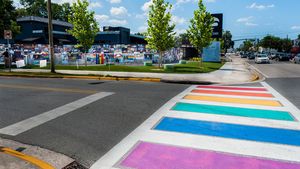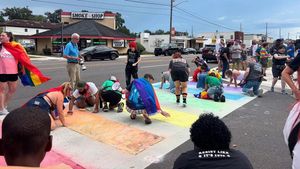The U.S. Food and Drug Administration Friday expanded the use of a COVID-19 antibody therapy for post-exposure prophylaxis, or PEP, for certain people who have been exposed to COVID-19 or who are at a high risk of being exposed.
The antibody cocktail is known as REGEN-COV and it essentially works as PEP for HIV does: It reduces the risk of infection even if a person has been in close contact with someone with the virus.
A study found that it was 81 percent effective in reducing symptomatic COVID-19 infections, according to a press release from Regeneron Pharmaceuticals.
The antibody cocktail is given monthly, lessening the stress of a routine regimen in a place where there could be repeated exposure such as in prisons or retirement homes.
Regeneron notes it is not a substitute for the COVID-19 vaccine and is not authorized to act as a pre-exposure prophylaxis to prevent the disease.
“[The FDA’s] authorization enables certain people at high risk of developing severe COVID-19 infection to access REGEN-COV if they have been exposed to the virus — the first time an antibody treatment has been authorized for this purpose," said Dr. George D. Yancopoulos, president and chief scientific officer of Regeneron. "With this authorization, the FDA specifically highlights the needs of immunocompromised people, including those taking immunosuppressive medicines, who may not mount an adequate response to vaccination, who are exposed to a person with COVID-19 or are in an institutional setting and are at high risk of exposure because of infection occurring in the same setting.”
About 3 percent of people in the U.S. may not respond completely to COVID-19 vaccines due to immunocompromising conditions or medications — such as living with HIV.
The emergency use authorization allows REGEN-COV to be injected into the skin or veins. A repeat dose can be given every four weeks.
“We continue to work with the FDA as it undertakes its review of REGEN-COV in a broader group of people, including in a pre-exposure prophylactic setting for people who are immunocompromised and in patients hospitalized due to COVID-19,” Yancopoulos said.



































































